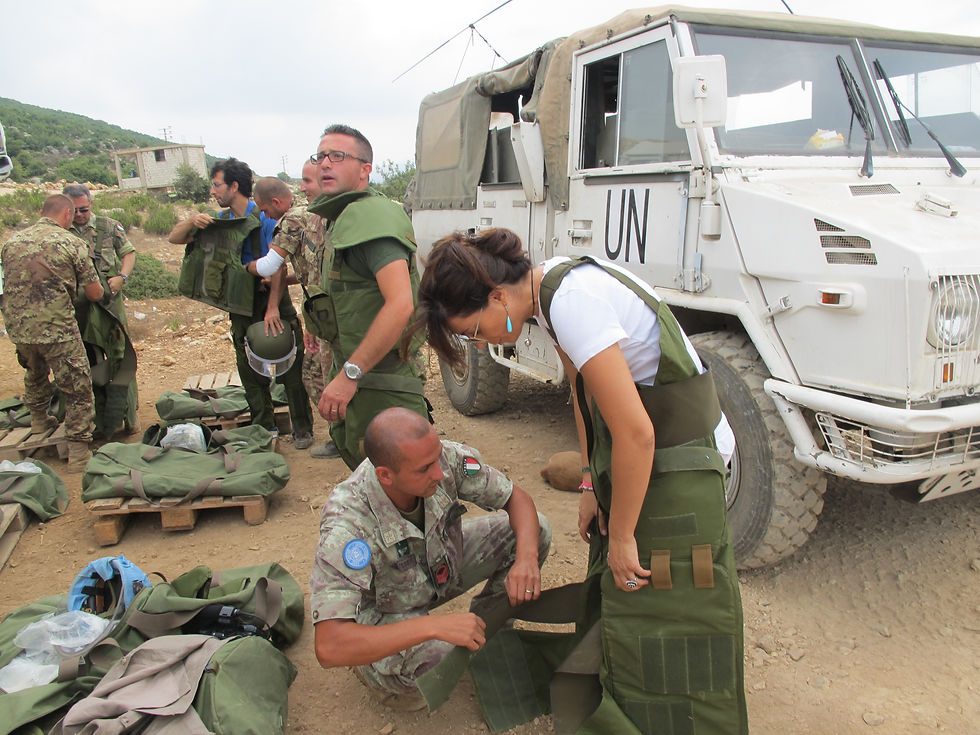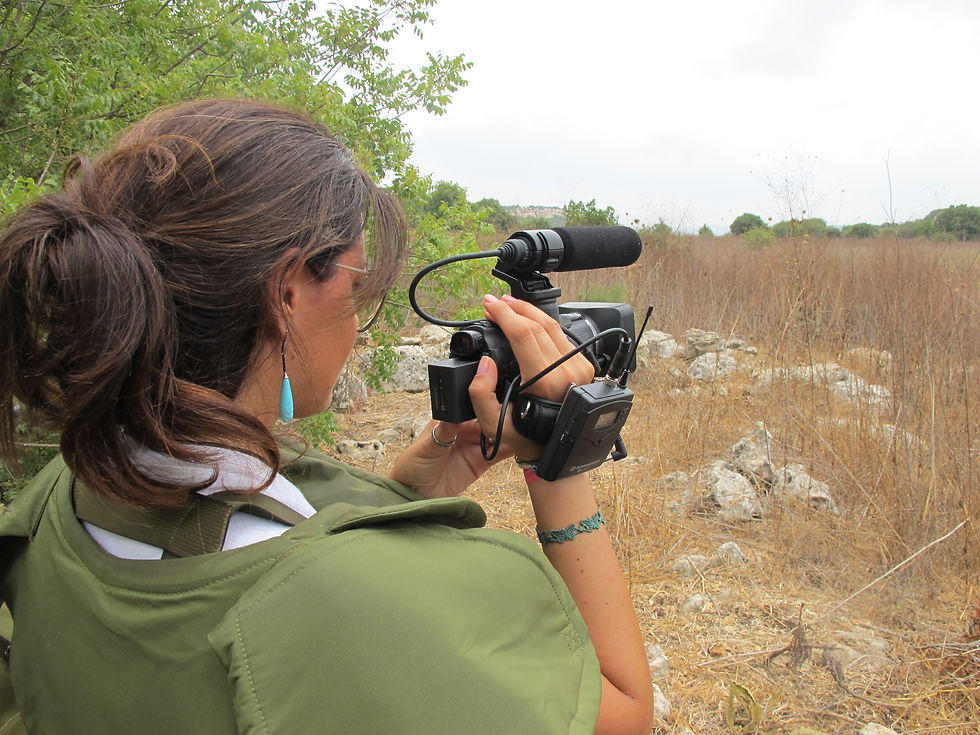Tonia Cartolano
- SAMIR ZAKARIA
- Jul 14, 2023
- 5 min read
Updated: Jun 15, 2024
Driving radical change in the female leadership mindset in Italy one story at a time.
By SAMIR ZAKARIA
July, 2023

As a prominent journalist for Sky tg24 and host of Buongiorno, Sky’s leading morning news program, Tonia Cartolano is one of Italy’s most widely celebrated anchors and journalists. The Salerno-born multi-award-winning journalist and author has covered major national and international news events as a correspondent multiple times in Afghanistan, Lebanon, Kosovo, Iraq and Libya, providing close-up coverage of global crisis contexts in different foreign theaters. In Italy, the nation looks to her to go beneath the surface of Italy’s hardest- hitting news, tackling issues such as the 6.3 magnitude earthquake in Abruzzo that caused widespread destruction, the Viareggio train disaster, the G8 summit in L’Aquila, the Costa Concordia shipwreck, the collapse of the Morandi Bridge in Genova and most recently, the Covid-19 pandemic in Italy, from which the award-winning documentary La Nostra Story was produced together with Emanuela Ambrosino. Cartolano has dedicated her career to shedding light on important issues and demonstrating that women can affect and drive social change.
“We often see successful people, but we don’t know what goes on behind the scenes of their lives.”

In 2022, Cartolano wrote LeadHers: Women and Stories of Extraordinary Normality. The book features seven “extraordinarily normal women” whose stories serve as true models of inspiration: Elisabetta Belloni, Director of the Department of Information for Security; Tania Cagnotto, World Champion and Olympic diver; Elisabetta Franchi, fashion designer and entrepreneur; Gaia Pigino, scientist; Titti Postiglione, Deputy Head of the Italian Civil Protection Department; Speranza Scappucci, orchestra conductor; and Paola Severino, President of the National School of Administration. In their unique way and personal stories, these seven protagonists prove in words (and deeds) that an intelligent woman can fulfill herself as much as a man. Without prejudices, differences or categories. And above all, without trying to look like men, capable, as women are, of leadership that is no better than that of men, but different. Unique. The author starts from the goal achieved to narrate who they are, where they began, and how they got where they are. And page after page, these stories unveil essential answers to questions about female leadership.
SAMIR: Why did you decide to focus on the topic of female leadership in your book?
TONIA: I had in mind to write something related to women belonging to a patriarchal culture. I felt the need to inform readers on the work and career possibilities from the perspective of a southern woman. There is also another reason: I wanted to answer a question that has been on my mind since I was a child: Can a woman from the South succeed without coming from a wealthy family? We often see successful people, but we don’t know what goes on behind the scenes in their lives.
SAMIR: What did you find in common with the women you interviewed?
TONIA: Each of them has a piece of me, and I am a part of each of the seven stories, a sort of mutual exchange. All the stories share the same characteristics: suffering, setbacks, sacrifice, and difficulties, but also success and victory, family, and values. I recognize a part of myself in each of the seven stories.
SAMIR: After so much suffering, are there any results?
TONIA: As time goes by, the results are starting to show, fortunately. We are already witnessing it. For the first time, we have a woman as Prime Minister. We have also seen the first woman at the Constitutional Court in 2019 and the first woman as President of the Court of Cassation this year. We are in a historic moment where female leadership is very important. Women should also be seen as the backbone of a country’s economy. Predictions from the Bank of Italy say our gross domestic product would grow by as much as 6 or 7 percentage points with a female employment rate of 60%.

SAMIR: In early march of this year, you had a face-to-face meeting with pope francis on the topic of women; what sensation did you feel looking into the pope’s eyes?
TONIA: The Pope conveyed a sense of strength to me. In the Italian language, the word “forza” (strength) is feminine, and yet when we generally think of strength, we mean physical power. Through his eyes, I saw a tender, emotional, and delicate feminine strength. The sensation I had was that of a man with great tenacity but also great sweetness and tenderness.
“Taking care of someone, the future, the world, humanity. And women know how to do that.”
SAMIR: …and what is the holy father’s view on female leadership?
TONIA: Pope Francis has handled the topic with great sensitivity. He often uses a characteristic word of the feminine world: Care. Taking care of someone, the future, the world, humanity. And women know how to do that.
Unlock the full experience now! Enjoy unlimited access to all of Lost & Found Italy in Italy.
“Every day, I have a challenge that goes beyond sad stories, which is to find at least one good news item or a bad story with a positive twist. It requires courage, but it also requires spreading positive energy.”
SAMIR: Among the many stories you’ve covered, which one struck you the most?
TONIA: I was in Afghanistan during a crucial period for that country when the West was handing over power and management of the country to local forces. I spent many days there, and among the many stories I covered were those of women confined in prison. They saw their time in that prison as a place of utmost freedom. I met a very young girl who calmly told me how she had slit her husband’s throat because he forced her into prostitution. She said that, for her, the time spent in prison was equivalent to university because she was learning her rights, what women can do, what they must do, what they are capable of doing.

SAMIR: Your professional journey also includes a fellowship at CNN in 2019, where you experienced a new type of journalism that was relatively unknown in our country at the time. Could you describe it?
TONIA: My experience at CNN was of great importance. I had the opportunity to look at and experience the future of newsrooms. It was like a time machine, with an international comparison experience. I had the chance to learn about journalism from a country at the forefront, and everything I saw there arrived in Italy a few years later. I engaged with a group of journalists from all over the world: from South Korea to Hungary, Norway, Turkey, and the Middle East. It was one of the most important professional experiences of my life.

SAMIR: On a professional level, you deal with terrible news every day, crime stories, conflicts, abuse, economic crises, and much more. How do you find a balance in the news program you host?
TONIA: Every day, I have a challenge that goes beyond sad stories, which is to find at least one good news item or a bad story with a positive twist. It requires courage, but it also requires spreading positive energy. Another thing I do in my work is to find different stories, the experience of an astronaut in space, for example. It’s a way to disconnect from the bad news.
Credits:Photos courtesy of Tonia Cartolano



